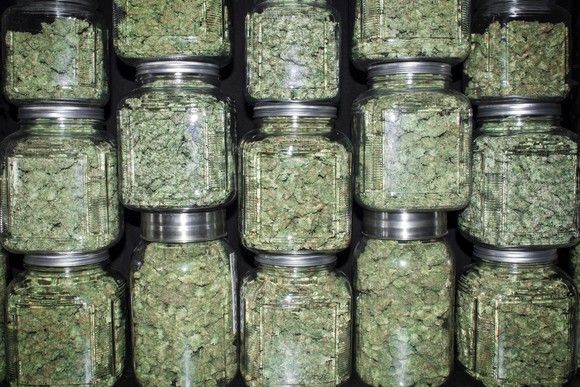Marijuana Prices Are Plunging in Colorado, and That Could Be Bad News
 Few industries are growing as quickly and consistently as legal marijuana, which is a big reason investors haven't been able to get enough of marijuana stocks in recent years.
Few industries are growing as quickly and consistently as legal marijuana, which is a big reason investors haven't been able to get enough of marijuana stocks in recent years.
According to investment firm Cowen & Co., the legal U.S. cannabis market is expected to reach $50 billion in annual sales by 2026. On a more intermediate basis, cannabis research firm ArcView is looking for a compound annual growth rate of 26% through 2021 in North America, which would yield almost a $22 billion market by 2021. That rapid growth could be the ticket to substantial gains for investors willing to gamble on a substance that's still wholly illegal at the federal level in the United States.
Image source: Getty Images.
Marijuana businesses have an uphill climb in the U.S.
But that doesn't mean "green" businesses have a cakewalk to success. Nearly all marijuana-based businesses face a plethora of challenges that are a risk to their profits, and in some ways survival.
For example, in the U.S., most cannabis companies are unable to obtain basic financial services, ranging from something as simple as a checking account, to a line of credit or loan. The reason? Financial institutions report to the Federal Deposit Insurance Corporation, a federally created entity. And since marijuana is illegal at the federal level, providing financial services to a pot company could be construed as money laundering, leading to fines and/or criminal charges against a bank.
In addition, cannabis companies face disadvantages come tax time. Namely, U.S. tax code 280E disallows businesses that sell federally illegal substances from taking normal corporate income-tax deductions. Though not all pot businesses are profitable, if they are, they'll be required to pay tax on their gross profit instead of net profit, leaving less cash left over to reinvest and hire more workers.
Beyond just financial challenges, Attorney General Jeff Sessions is trying to squash the industry before it expands further. There's arguably no one more opposed to cannabis in D.C. than Sessions. Back in May, Sessions sent a letter to a few of his Congressional colleagues requesting the repeal of the Rohrabacher-Farr Amendment, which is what protects medical marijuana businesses in legal states from federal prosecution.
Image source: Getty Images.
News flash: marijuana prices are plummeting in Colorado
At seemingly every turn, cannabis companies face challenges. Well, it's time to add yet another.
According to a new analysis from The Economist, the wholesale price for a pound of cannabis in Colorado, the first state to begin legally selling recreational pot, has plunged from a peak of $2,000 in January 2015 to just $1,300 a pound today. Lower prices for dried cannabis are likely to mean lower margins, unless the cost per gram to produce marijuana has fallen by more than 35% over that same period.
Why the 35% drop in wholesale marijuana prices on a per-pound basis? The Economist attributes an expansion of supply and an increase in competition as a result of Sessions' mostly being all talk and no action. There's also some seasonality to this pricing, with peak pot prices observed during the ski season, when tourism picks up in the state.
However, I'd contend that we're seeing something altogether different. My suspicion is that big businesses have been primarily responsible for weighing down pot prices in Colorado.